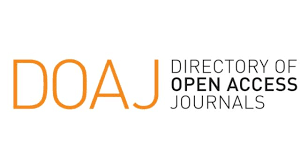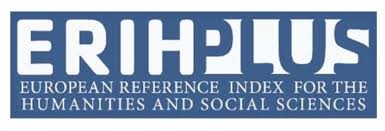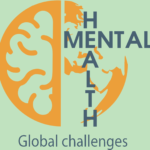Journal Policies
Archiving policy
This journal utilizes the Portico system to create a distributed archiving system among participating libraries and permits those libraries to create permanent archives of the journal for purposes of preservation and restoration.
Conflicts of interest
Mental Health: Global Challenges Journal requires authors to declare all competing interests in relation to their work. All authors are required to fill and sign Form to disclosure potential conflict oif interests. All submitted manuscripts must include a ‘competing interests’ section at the end of the manuscript listing all competing interests (financial and non-financial). Where authors have no competing interests, the statement should read “The author(s) declare(s) that they have no competing interests”. The Editor may ask for further information relating to competing interests.
Editors and reviewers are also required to declare any competing interests and may be excluded from the peer review process if a competing interest exists.
What constitutes a competing interest?
Competing interests may be financial or non-financial. A competing interest exists when the authors’ interpretation of data or presentation of information may be influenced by, or may be perceived to be influenced by, their personal or financial relationship with other people or organizations. Authors should disclose any financial competing interests but also any non-financial competing interests that may cause them embarrassment if they were to become public after the publication of the manuscript.
Financial competing interests
Financial competing interests include (but are not limited to):
Receiving reimbursements, fees, funding, or salary from an organization that may in any way gain or lose financially from the publication of the manuscript, either now or in the future.
Holding stocks or shares in an organization that may in any way gain or lose financially from the publication of the manuscript, either now or in the future.
Holding, or currently applying for, patents relating to the content of the manuscript.
Receiving reimbursements, fees, funding, or salary from an organization that holds or has applied for patents relating to the content of the manuscript.
Non-financial competing interests
Non-financial competing interests include (but are not limited to) political, personal, religious, ideological, academic, and intellectual competing interests.
Copyright notice
Authors who publish with this journal agree to the following terms:
- Authors retain copyright and grant the Journal right of first publication with the work simultaneously licensed under a Creative Commons Attribution License International CC-BY-NC, that allows others to share the work, with an acknowledgement of the works authorship and initial publication in this Journal.
- Authors are able to enter into separate, additional contractual arrangements for the non-exclusive distribution of the journal's published version of the work (e.g. post it to an institutional repository or publish it in a book), with an acknowledgement of its initial publication in Mental Health: Global Challenges Journal .
- Authors are permitted and encouraged to post their work online (e.g. in institutional repositories or on their website) prior to and during the submission process, as it can lead to productive exchanges, as well as an earlier and greater citation of published work (See The Effect of Open Access).

Editorial policy
Mental Health Global Challenges Journal follows the practicies of Council of Scientific Editors (CSE),
National Information Standards Organization (NISO), and International Committee of Medical Journal Editors (ICMJE)
The basic principles:
1. Objectivity and impartiality in the selection of articles for the purpose of publication.
2. High demands on the quality of scientific research.
3. Double "blind" review articles.
4. Collegiality in decisions regarding publications.
5. Accessibility and efficiency in dealing with authors.
6. Strict compliance of the copyright and related rights.
Open access policy
This Journal practicies a policy of immediate open access to the published content, supporting the principles of the free flow of scientific information and the global exchange of knowledge for common social progress.
Plagiarism policy
Mental Health: Global Challenges Journal uses the iThenticate® text comparison software from Turnitin to detect plagiarism.
It is unacceptable to copy text and arrogate study results, which do not belong to the authors of the manuscript submitted.
Authors should ensure that the submitted manuscript:
• describes entirely original work;
• is not plagiarized;
• has not been published elsewhere in any language;
• utilizes appropriate citation or quotation, if the authors have used the work and/or words of others.
Applicable copyright laws and conventions should be followed. Copyright material (e.g. tables, figures or extensive quotations) should be reproduced only with appropriate permission and acknowledgement.
The editors reserve the right to screen submitted manuscripts for plagiarism. Plagiarism is unacceptable.
Privacy statement
The names and e-mail addresses that are specified by users of the website of the Journal will be used only to deal with internal technical problems of this magazine; they will not be distributed and shared with third parties.
Ethics Statement
The journal follows the recommendations and core practices of the Committee on Publication Ethics (COPE, https://publicationethics.org/core-practices ) regarding ethical policies and dealing with misconduct. Misconduct includes falsifying data, plagiarizing others' works, double-publication, citation manipulation, data falsification, inappropriate author attribution, and breach of confidentiality. In the case of study on patients, volunteers, students, and/or any individual or group that may be identifiable, the author must have ethics committee approval and informed consent of the participants. Each case will be considered by the Editor-in-Chief, and in all cases the author (or reviewer) will be contacted directly.
The Mental Health: Global Challenges Journal is committed to ethical principles and these are interwoven in the publishing process. As a result, clear rules and regulations have been communicated to editors and reviewers which support the ethical expectations associated with Mental Health: Global Challenges Journal (for more information please visit “roles & responsibilities”, “privacy statement”). The Journal also complies with the Committee on Publication Ethics Guidelines for Peer Reviewers (https://publicationethics.org/files/Ethical_Guidelines_For_Peer_Reviewers_2.pdf) which provides a comprehensive guide to the ethics of peer review.
Important information on ethical issues (COPE’s guidelines) that might be helpful for authors as well as editors:
- What to do: Suspected redundant publication in a submitted manuscript
- What to do: Suspected redundant publication in a published article
- What to do: Suspected fabricated data in a submitted manuscript
-What to do: Suspected fabricated data in a published article
Authors who wish to submit a manuscript to the journal must contribute significantly to the scientific body of knowledge, as well as follow professional academic ethical principles as they are accountable for their work. They must carefully review and approve the final version of the manuscript before passing to our typesetting team for publication.
The Mental Health: Global Challenges Journal follows the Creative Commons Attribution License International CC-BY-NC international License and author/s must agree on the terms under this license in order to have their manuscript published in the Mental Health: Global Challenges Journal.
The Mental Health: Global Challenges Journal has provided clear guidelines on copyright for authors, reviewers and editors on the website (for more information please visit “authors guidelines”) and expects authors and editors to follow these guidelines very carefully.
The Mental Health: Global Challenges Journal expects that not only the corresponding author, but all the authors involved in the manuscript are responsible and should be involved in all communication associated with their manuscript submitted to the journal. All authors must acknowledge and confirm the originality of the data and manuscript as well as agree to the copyright contract provided by Mental Health: Global Challenges Journal. Author/s must confirm that the manuscript is original and has not been published previously or is under consideration by any other journal.
It is the authors’ responsibility to seek permission and approval from other journals if they use any information including data or materials that have been published in any other journal. Failure to do so may result in the rejection of the paper and the authors being banned from future submission to the Mental Health: Global Challenges Journal. Moreover, author/s are required to acknowledge if they have received any funds or financial aid or assistance from any other contributor who is not part of the list of authors.
The Mental Health: Global Challenges Journal takes the reviewing process very seriously and it is kept confidential, so that submitted material is not shared with any third party. Also, we strongly recommend that author/s keep all information related to their manuscript secure until the final manuscript is approved for publication.
Manuscripts will be reviewed with due respect for authors’ and reviewers’ confidentiality. Our editors have been instructed to not disclose information about manuscripts (including their receipt, content, status in the reviewing process, criticism by reviewers, or ultimate fate) to anyone other than the authors and reviewers. Manuscripts sent for review are privileged communications. Therefore, reviewers and members of the editorial staff must respect the authors’ rights by not publicly discussing the authors’ work or appropriating their ideas before the manuscript is published. Reviewers may not make copies of the manuscript for their files and will not share it with others, except with the editor’s permission. Reviewers should return or destroy copies of manuscripts after submitting reviews.
The Editor-in-Chief and editorial board exists to maintain and supervise the integrity and quality of not only each individual manuscript but also the process of review. Editorial board members work closely with our reviewers to make sure author/s are given full and completed review feedback on a timely basis to comply with our quality assurance
Reviewer and Editorial Board Responsibilities
Editorial board responsibilities:
Maintain communication with Editor-in-Chief to further develop the journal (style suggestions, authorship criteria etc.).
Provide guidelines to authors for preparing and submitting manuscripts.
Treat all authors with fairness, courtesy, objectivity, honesty, and transparency.
Protect the confidentiality of every author’s work.
Clearly communicate all other editorial policies and standards.
Note: As an academic reader, you may receive papers for review and act as a reviewer, as appropriate
.
Reviewer responsibilities:
As part of the MHGCJ review team, you will be asked to:
Provide your ORCHID ID and register with Publons.
Review up to 3 papers per year.
Treat all authors with fairness, courtesy, objectivity, honesty, and transparency.
Protect the confidentiality of every author’s work.
Be punctual in delivering the review up to the agreed date.
Check the quality of the paper, relevance and appropriateness for the journal.
Advise on structure and format and make sure authors follow the appropriate referencing style
NOTE:
If you are unable to review within the pre-defined time scale please communicate immediately with the editor in charge.
If you are unable to review due to relevance of the content to your expertise, please communicate immediately with the editor in charge.
If you are unable to review due to conflict of interest (full, partial or potential) please communicate immediately with the editor in charge.
Check the quality of the paper, relevance and appropriateness for the journal.
Advise on structure and format and make sure authors follow the appropriate referencing style
Advertising Policy
The Journal's website does not contain online advertising.




 E-mail us: viktor.vus@mhgcj.org
E-mail us: viktor.vus@mhgcj.org 